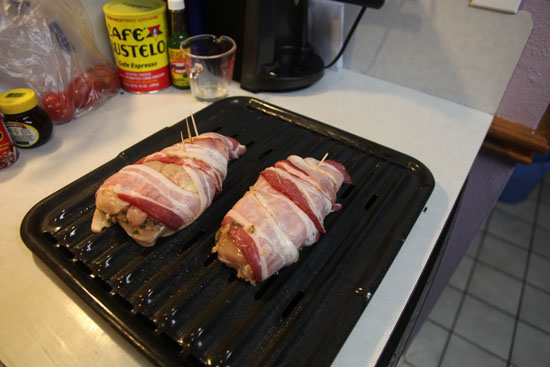Running and Friendly Links
Do you need an article or blog post written and featured on one of our sites or yours to promote your business? Hire Me!
Train Low, Race High
Low Carb, High Protein Training Diets are Gaining Traction

For years, carb loading was considered the best dietary means of enhancing a runner’s performance. The human body stores 300 to 400 grams of carbs as muscle glycogen, and it was assumed high carb diets, consumed immediately after exercise, allowed athletes to run longer without depleting glycogen reserves.
New studies suggest carb loading may not be as beneficial as previously thought. Instead, a “train low, race high” system tricks the body’s genes into improving energy use and boosting endurance. The Paleo Diet is one regime that leans in this general direction.
It’s important to keep in mind that these differing schools of thought keep changing from year to year. Protein, carbs, fitness supplements, yada, yada, yada. The bottom line? Try what you like and do what works for you.
Two Legs, Two Training Regimes
Andrew Hamilton from Peak Performance explains the research saying, “One of the earliest and most well respected studies to look into the effects of low-glycogen training compared the training adaptations in muscle produced by performing leg extension exercise either twice a day on alternate days, or once a day on consecutive days(6). Exercising twice daily resulted in muscles performing an identical volume and intensity of training, but doing so in a low glycogen state during the second session of the day.
The striking finding was the very significant gain in both time to exhaustion and total work performed in the twice daily, low-glycogen trained muscles compared to daily trained muscles. In addition, the Danish researchers discovered that the low-glycogen trained muscles became better at burning fat for energy and soaking up carbohydrate to store muscle glycogen once carbohydrate feeding was resumed.”
Switch Your Genes On
Training with low glycogen levels seems to activate genetic changes, which in turn alter how cells produce proteins and use energy. For instance, low glycogen training raises cellular production of AMPK, or AMP activated protein kinase.
This enzyme in turn triggers an increase in mitochondria in muscle cells. Mitochondria are a cell’s power source, and an increase in muscular mitochondria improves your ability to burn fat while increasing aerobic energy.
The result is a lot like drinkers who feel refreshed and more energetic after staying at inpatient alcohol rehab centers.
Of course, another way to switch your genes on in conjunction with your diet is speedwork. Your genetics determine your fast twitch/slow twitch muscle ration and only weekly speedwork will efficiently activate the fast ones.
Controlling Carb Intake
Training on low glycogen levels conditions the body so it can perform without excess glucose for extended periods of time. Instead of overloading on carbohydrates, the runner limits carbs to 150 grams a day.
You don’t need to use supplements to maintain this level of carb training. Choose fresh fruit, yams, sweet potatoes, white potatoes, rice, and squash to meet your carb needs.
For interval training, increase carb intake the day before, and the morning of, training. Two days before a race, increase your carb intake to approximately 350 grams a day—a significant increase, but minor compared to that seen with carbohydrate overloading.
Skip heavy training in favor of light jogs and walking during this time period. On race day, eat a light, easily digested breakfast; yams, eggs and bananas are ideal pre-race foods.

Follow Kelly Smith on Pinterest
More Sports Medicine Articles
- The Basics of Ultramarathon Training
- The Columbia Omni Freeze Zero Shirt
- All Natural Exercise Supplements that Work
- How to (Mentally) Survive Your Long Run
- Evaluate and Treat Runners Knee
Did you find this article helpful? Thanks for supporting this free site with a small donation!
References:












